Golf for all: Golf is one of the most accessible sports for everyone
– January 22, 2024 | Text Beatriz Maio | Photos Courtesy of EDGA
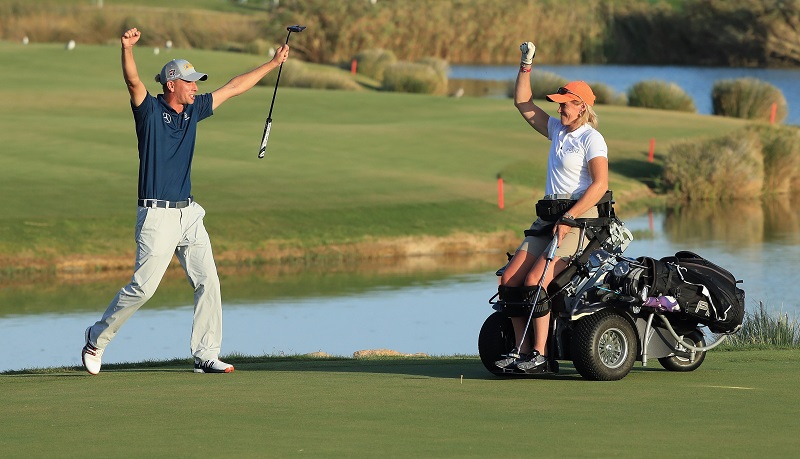
There is a growing number of people with disabilities playing golf around the world, not just as a leisure activity but also competitively, which has led athletes to look for clubs that tick all the boxes.
Having played golf since the age of 12, Tony Bennett has been the director of the European Disabled Golf Association (EDGA) for nine years, an organisation focused on creating an inclusive game in which players with disabilities are included and valued through international events and tournaments.
In addition to a remarkable academic and professional career, with a PhD in Philosophy from Durham University and a Master’s degree from the University of Birmingham in the UK, he stands out for his work on behalf of G4D – Golf for the Disabled – creating a bridge between golf clubs, organisations and federations around the world.
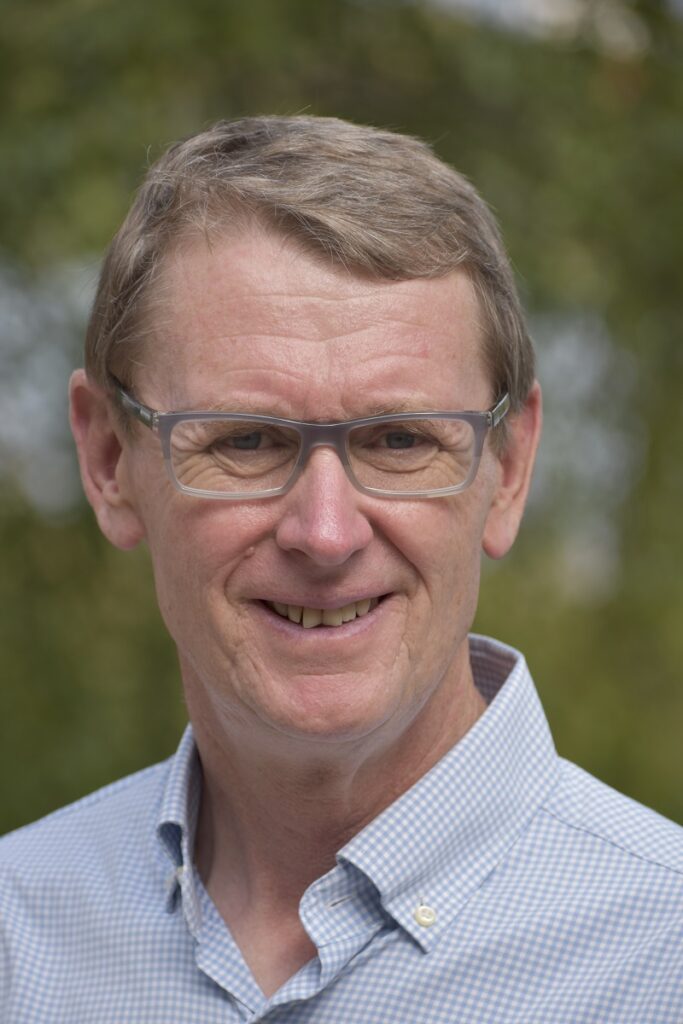
Tony Bennett moved to Portugal 27 years ago, when he accepted an invitation to become a national coach for the Portuguese Golf Federation, a position he held for seven years. Later, he opened six golf academies across the country to give more players and beginners the chance to discover the sport and develop their skills. In 2008, he became Director of Education for the Confederation of Professional Golf (CPG), made up of 39 professional golfers’ associations (PGAs) and, over the years, he has served as an advisor for several federations.
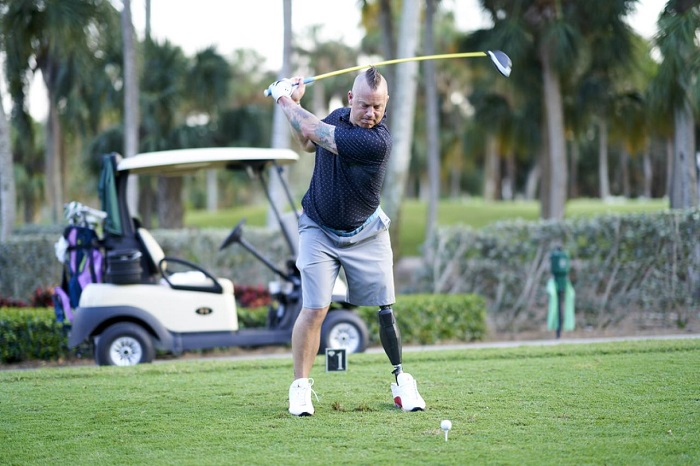
In 2013, EDGA sought his expertise to help expand the organisation and improve their services for players. At the time, EDGA was made up of eight federations from different countries, had 400 players, and held four tournaments a year.
Today, it can be found in 38 countries, has around 3,000 members and organises around 100 competitions a year.
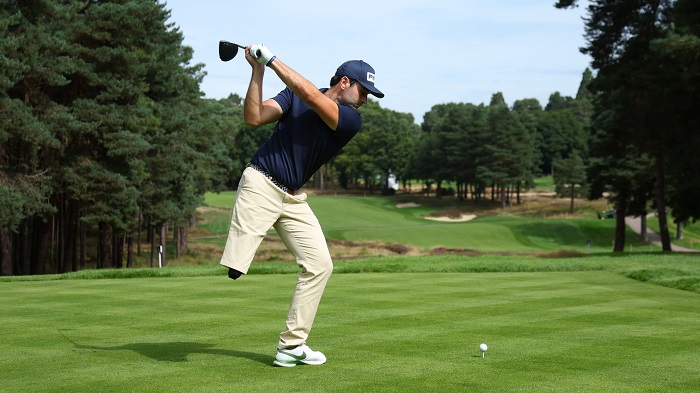
As president of EDGA, Tony has worked hard to spread the message that golf is one of the most accessible sports for everyone, especially because the ball is a static and individual target.
“It’s a great opportunity for people with disabilities to exercise and get outdoors because many spend too much time at home,” he said, emphasising that “there are many benefits” to playing golf, both physically and psychologically. Making as many golf clubs as possible accessible is one of his priorities, as is raising awareness and drawing attention to the “lack of understanding” towards the 15% of the world’s population who live with some form of disability. More specifically, he focuses on breaking down barriers to make this sport more inclusive.
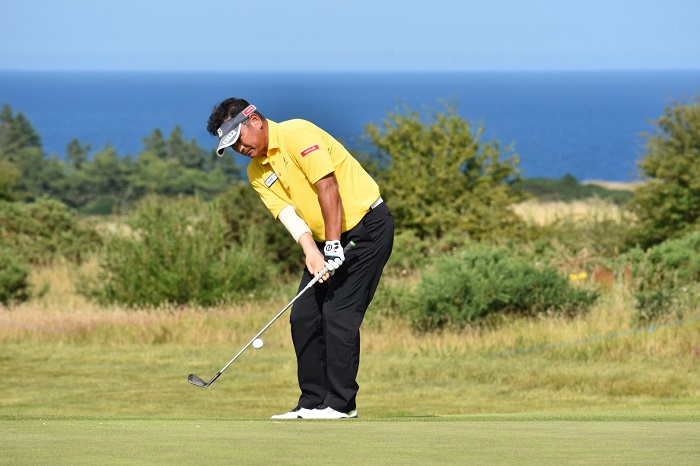
Tony acknowledges that there is still a long way to go for “the opportunities available to people with disabilities to be the same as those available to everyone else”, from accessibility in accommodation and restaurants to sports and even employment. EDGA has more than 120 testimonials of athletes that reach thousands of people and continue to be shared daily. Among these are Portuguese golfers Pedro Sottomayor and Jorge Gabriel.
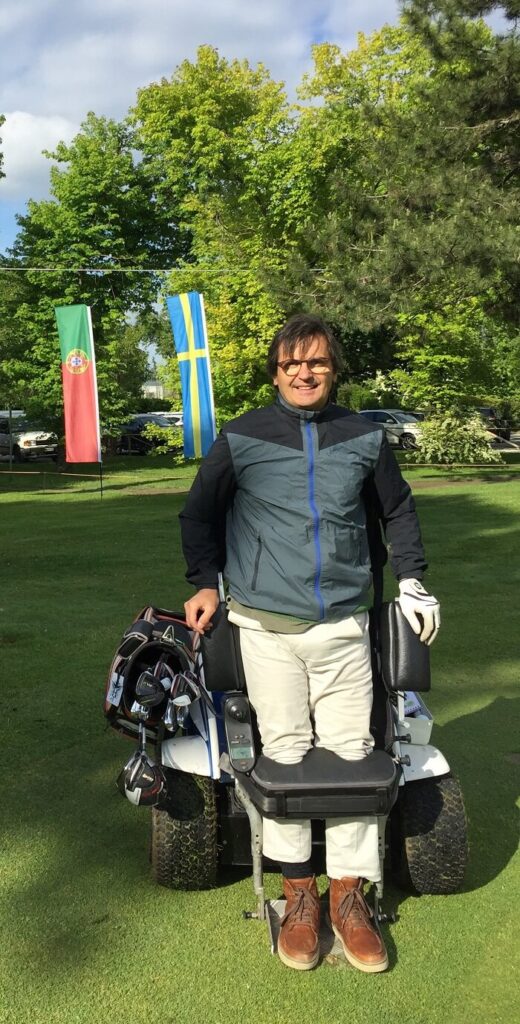
The fascination with golf runs in the family and it was precisely whilst watching his maternal grandfather play that Pedro Sottomayor began to develop a passion for the sport. But although he had practised various sports, such as judo, sailing, fencing, swimming and volleyball, his dedication to this sport came later in life.
Pedro started at the age of 30, when he had not yet been diagnosed with Multiple Sclerosis, a condition that affects 2.3 million people worldwide.
“When symptoms started, I said goodbye to golf; I thought I would never play again,” he recalls. Motivated by the desire to exercise and maintain good physical condition, he found out about alternative sports and learnt about ParaGolf, which he has been practising for 10 years, using an electric wheelchair adapted for golf. It was then that the sport “took on an important role” in his life again and he came across EDGA.

Pedro believes that the work done by the association in regulating adaptive golf “is fundamental” as is its work in the “logistics involved in hosting players from all over the world”. The Portuguese golfer has played all over Europe, where he has made friends in various countries, and believes there are good conditions to welcome people with reduced mobility.

Jorge Gabriel started playing in 2020, two years after recovering from a leg amputation. He had previously tried sailing, paragliding and mountain biking but never golf. Encouraged by his wife Beatrice, he took lessons and has been playing with her ever since, which has greatly contributed to the couple’s health and well-being.
“The state of concentration that each round requires and the beautiful scenery” are two factors that help him both physically and psychologically and bring him serenity. “When we are playing, we forget about everything else; it’s just us and that small ball that won’t do as it’s told,” he joked.
For around two years, Jorge has been playing in tournaments organised by EDGA, an organisation he praises for being “accessible and attentive to its members”, and through which he has met other players. However, he feels sad to know that he is the only Portuguese player competing in EDGA tournaments, stressing that it is important to “encourage other disabled players to participate because there is no real reason for them not to”.
Praising Tony Bennett for his “extraordinary work” encouraging people with disabilities to start their journey with adaptive golf or to improve their skills, Jorge further noted that the EDGA president creates the best conditions for players to believe that “it is possible to get more enjoyment out of a round of golf”.






